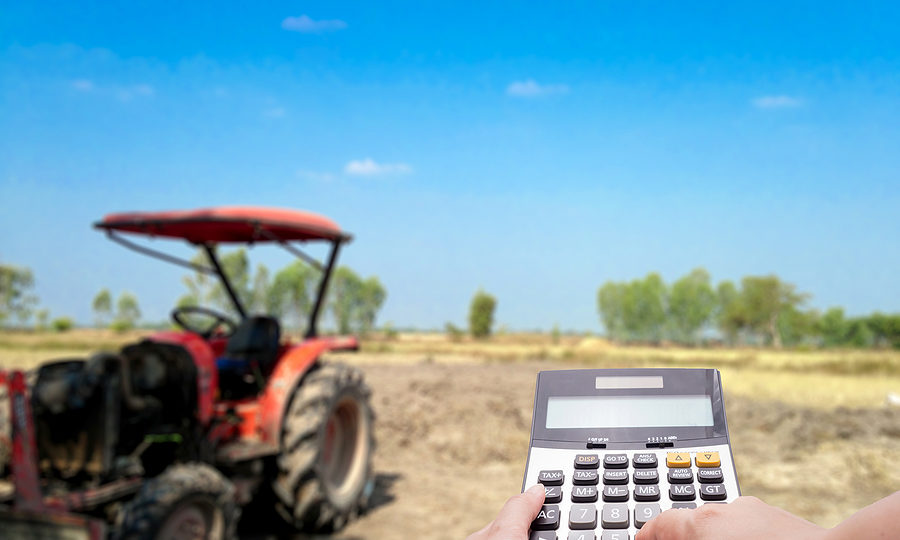Agricultural Accounting Essentials for Farmers
- Apr 11, 2023
- By Genske, Mulder & Company
- In Uncategorized
- Comments Off on Agricultural Accounting Essentials for Farmers
Managing your farm finances is crucial for the growth and success of your dairy farm operation. However, agriculture complexities can make keeping track of expenses and revenue streams challenging. As a farmer, it’s crucial to understand your business’s accounting aspects. It involves keeping your records up-to-date, complying with IRS regulations, accounting for typical small business components, and understanding the unique accounting practices that come with farming – such as dealing with livestock, land, and equipment. This is where agriculture accounting steps in.
What is Agricultural Accounting?
Agricultural accounting refers to the specific accounting procedures for your farming business. Like other companies, it involves maintaining up-to-date records and creating financial reports to monitor the economic well-being of your farm. However, agricultural accounting also incorporates unique aspects specific to farming, like livestock, farm equipment, and land value.
Defining Farm Businesses
The IRS provides clear guidelines to determine what constitutes a farm business. For example, if you “cultivate, operate, or manage a farm for profit, either as an owner or tenant,” you fall under the farming business category.
A farm business encompasses:
- • Livestock
- • Dairy
- • Poultry
- • Fish
- • Fruit
- • Truck farms
It also includes ranches, ranges, orchards, and groves. However, you won’t be classified as a farming business if you contract to harvest a commodity or purchase and resell crops or livestock from a third party.
Accounting Methods for Agricultural Businesses
When it comes to agricultural accounting, farm businesses typically employ one of two methods: cash basis or accrual accounting.
Cash Basis Method
Most farmers favor the cash basis method as it accounts for expenses when they are paid and receivables when payment is received. Though less precise than accrual accounting, it is more straightforward.
Accrual Basis Method
Some farmers, particularly those who run corporations with gross receipts of $26 million or more annually, are obliged to use accrual accounting. This method is also compulsory if you’re a tax shelter or in a partnership with a corporation with the same gross receipts.
Accrual accounting enables farmers to account for expenses when bills are received, not when they’re paid. If the farm maintains an inventory, this method determines gross income. Though it offers more accurate accounting, it is more complicated than the cash basis method.
Understanding Farm Income, Deductions, and Tax Forms in Agricultural Accounting
Defining Farm Income
Farm income comprises various revenue streams, such as earnings from operating a farm, selling crops, and receiving government subsidies. Therefore, it is vital to recognize what qualifies as farm income to ensure accurate recordkeeping and avoid penalties or increased IRS scrutiny.
Are farm business expenses deductible?
Indeed, farmers can deduct eligible expenses connected to their business operations. However, to be considered deductible, these expenses must be ordinary and necessary within the context of your farm. Examples of such expenses include supplies, livestock feed, insurance, and recordkeeping, among others.
Which expenses are non-deductible for farm businesses?
While many farming expenses can be deducted, not all are eligible. Personal expenses, such as those related to your dwelling or vehicle maintenance, are not tax-deductible.
Tax Forms
Sole proprietor farmers must file a Schedule F Profit or Loss from Farming form. This form lets you report your net profit or loss for the year. In addition, your farm’s profits and losses should be included on Form 1040 to determine your total tax liability for that year.
Discover the Client-Focused Approach of Genske, Mulder & Company, LLP
Our team at Genske, Mulder & Company, LLP comprises individuals with extensive backgrounds in the agricultural industry, giving them firsthand knowledge and understanding of your farm business. We specialize in agricultural accounting services for farmers of all types, offering exceptional value-added solutions. We are dedicated to empowering our clients with knowledge. Get in touch today and learn how we can help you Grow and Thrive.

